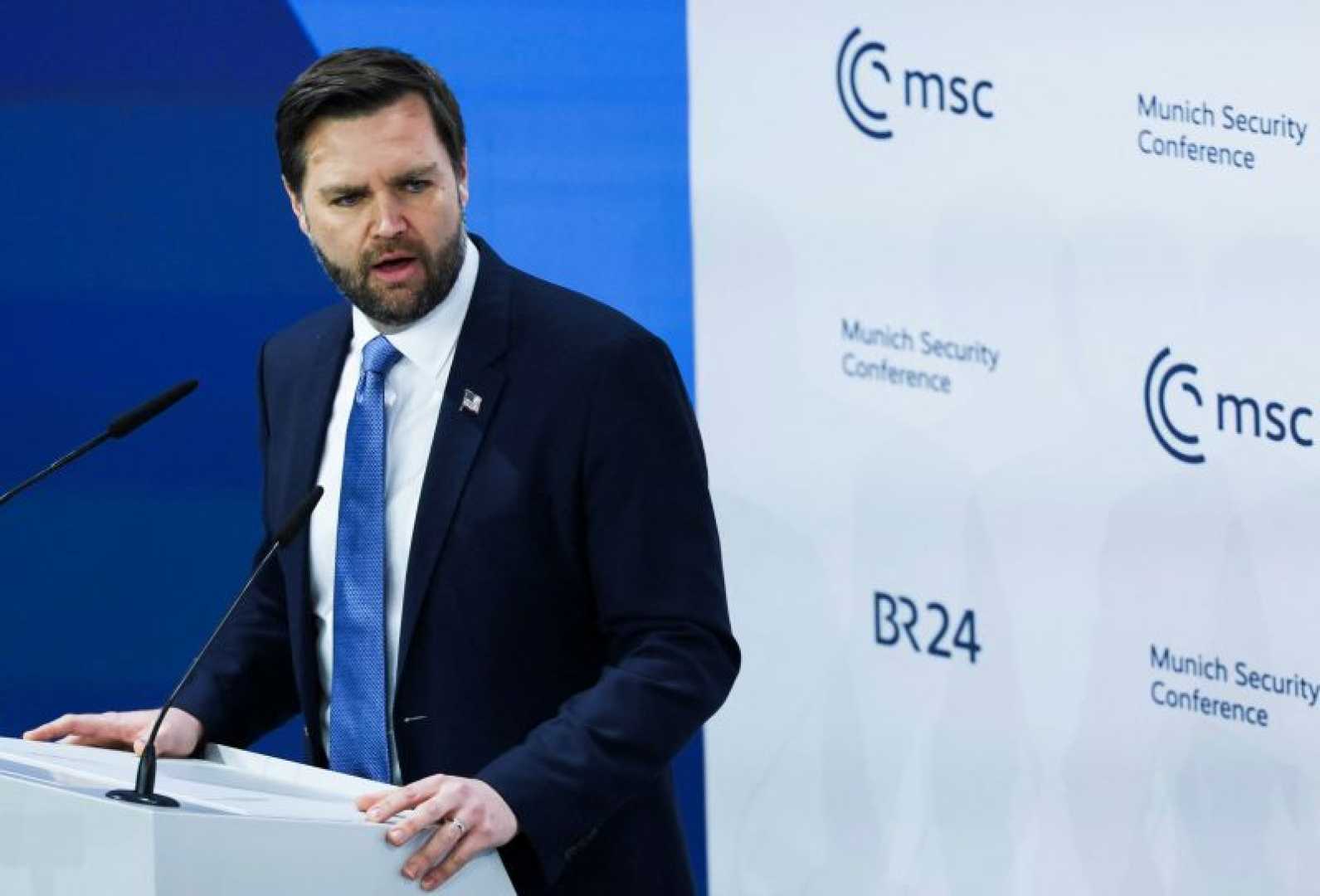Politics
Vance’s Foreign Trip and Policy Controversies Shape Early Administration Dynamics

WASHINGTON, D.C. — In a whirlwind series of events over the past 10 days, Vice President JD Vance has navigated substantial international and domestic challenges, asserting his role within the Trump administration while stirring controversy with his statements on critical issues.
Diplomatic efforts began with Vance’s first foreign trip to the Munich Security Conference on February 14, where he addressed global leaders and emphasized U.S. support for Ukraine amid rising tensions with Russia. His remarks raised eyebrows, notably suggesting that American backing for Ukraine could be reassessed, which critics interpreted as a departure from previous U.S. foreign policy aimed at countering Russian aggression.
“JD is President Trump’s Swiss Army knife,” a close adviser commented, highlighting Vance’s versatility in the administration. Vance stated at the Conservative Political Action Conference, “I’m in a good place right now,” as he juggled responsibilities ranging from international diplomacy to major budget negotiations on Capitol Hill.
Despite his proactive stance, Vance’s initial month in office has emerged as contentious. His social media commentary on judicial authority and immigration policy has drawn criticism, including backlash from within the Catholic community concerning his use of religious doctrine to justify immigration enforcement.
After Vance’s remarks questioning judicial oversight, concerns from constitutional scholars surfaced regarding the potential implications for executive power. “Judges aren’t allowed to control the executive’s legitimate powers,” he claimed, prompting pushback that the comments could undermine judicial rulings.
Meanwhile, domestic challenges brewed as Democratic Representative Ro Khanna publicly criticized Vance for supporting the Department of Government Efficiency’s dismissal of a staff member linked to recent inflammatory remarks on social media. “I’m with the VP,” Trump stated, reinforcing his backing of Vance amid the backlash.
Within the administration, Vance has established himself as an integral player, frequently meeting with Trump to discuss key issues. The two reportedly connect daily, sharing insights on pivotal matters including cabinet nominations. Vance’s lobbying effort for Trump’s cabinet picks has been noted, particularly for maintaining support during legislative hurdles.
Vance’s emerging prominence in foreign affairs coincides with the administration’s diplomatic strategy regarding the ongoing war in Ukraine. The U.S. has recently proposed its own resolution commemorating the conflict’s third anniversary, diverging from the Ukrainian-backed draft that condemns Russia’s actions. Secretary of State Marco Rubio described the U.S. approach as a “historic resolution” meant to foster peace.
However, the U.S. draft has been criticized for failing to hold Russia accountable, representing a shift in the Biden administration’s robust stances on international law and order. This reflects the Trump administration’s new approach that some analysts say prioritizes transactional agreements over traditional diplomatic principles, particularly as the U.S. engages with Russia.
As tensions rise between the U.S. and Ukraine, especially following Trump’s recent comments questioning the legitimacy of Ukraine’s president, analysts are concerned about the ramifications these diplomatic shifts may impose on U.S. foreign policy. “The goal of lasting peace remains achievable,” Rubio asserted, albeit amid growing skepticism regarding the administration’s intentions.
Experts are beginning to notice the early signs of Vance’s vice presidency shaping into a distinct narrative within political circles. The implications for both Vance’s political future and the administration’s direction remain to be seen, but for now, he appears to be strategically working to navigate this high-stakes environment.












